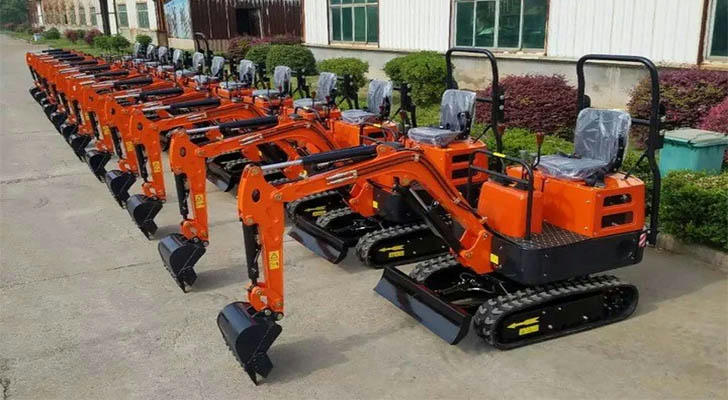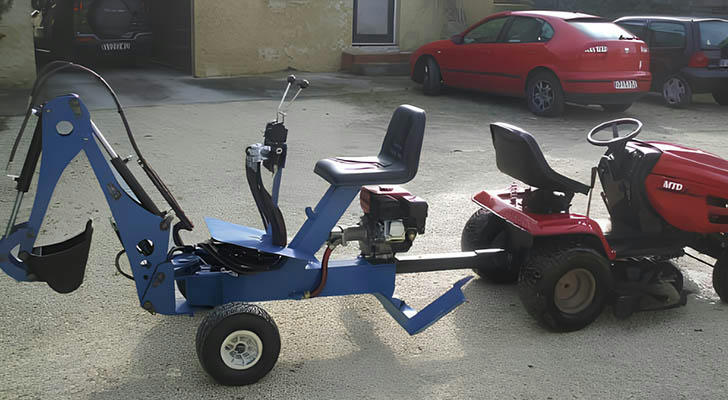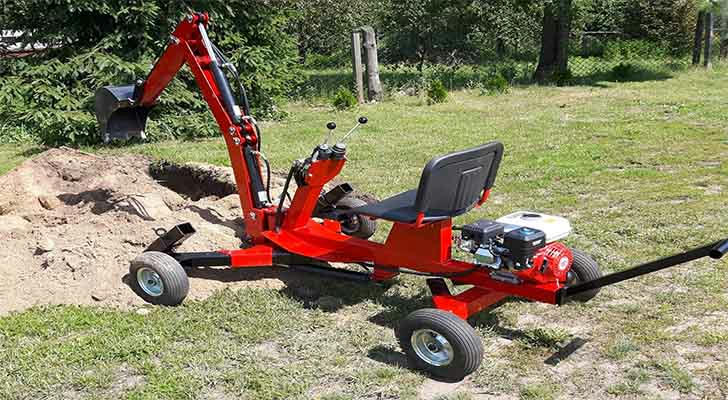When Should You Rent an Excavator Instead of Buying?

Excavators are essential in construction and civil engineering for earthmoving, digging, and material handling. Their versatility makes them crucial for various projects. Deciding whether to rent or buy depends on project requirements, budget, and long-term needs. This article outlines when it's better to rent and provides concrete solutions for making an informed decision.
Project Needs Analysis
Understanding your project's specific needs is key to deciding between renting and buying. Consider the following:
1. Project Scale: For small, short-term projects, renting is often more cost-effective as you only pay for the equipment while it's in use. Larger, long-term projects might justify purchasing, especially if the machine will be used regularly.
• Solution: Create a project checklist to determine the project's scope, the exact type of work needed, and the duration. Consulting with rental experts can help you match the right equipment to your specific job.
2. Project Duration: Renting suits short-term projects where the excavator is only needed temporarily. For long-term projects, ownership may provide better value.
• Solution: Use an online cost comparison tool to assess rental costs over time versus the upfront purchase price, factoring in maintenance and depreciation.
3. Type of Work: Different tasks require different excavator models and sizes, so choosing the right type is essential.
• Solution: If your project requires specific or varied excavators, rent specialized models to avoid the cost of buying multiple machines.
Cost-Benefit Considerations
Financial considerations play a significant role in whether you should rent or buy.
1. Initial Investment vs. Ongoing Costs: Renting requires lower upfront costs, while purchasing involves a large initial outlay and ongoing expenses like maintenance and insurance.
• Solution: Bundle services when renting, such as maintenance and delivery, to reduce long-term costs and simplify management.
2. Maintenance and Repairs: When buying, the responsibility for maintenance falls on the owner, whereas rental companies usually include these costs in their agreements.
• Solution: For rental, ensure that maintenance costs are covered in the contract. When buying, create a maintenance plan to avoid downtime due to repairs.
3. Depreciation and Resale Value: Equipment loses value over time, which can be a financial risk when purchasing. Renting eliminates this risk.
• Solution: Regularly renting allows you to avoid depreciation concerns and keeps your equipment up to date.

Technology and Equipment Updates
Technology is always advancing, and staying updated can be costly if you own the equipment.
1. Access to New Technology: Renting gives you access to the latest models, ensuring better performance and efficiency.
• Solution: Rent new models as technology evolves to ensure your project uses the most advanced equipment available without needing frequent upgrades.
2. Special Equipment Needs: For specific tasks, renting can give you access to specialized machinery that may not be worth purchasing.
• Solution: Rent specialized attachments or models for niche tasks without the financial commitment of purchasing.
Operations and Personnel Training
Operator skills and training are crucial for using excavators safely and efficiently.
1. Operator Skill Requirements: Different excavators may require operators with specific skills.
• Solution: When renting, leverage the rental company’s training programs to ensure your operators can handle the equipment safely and efficiently.
2. Training Costs: Renting often includes equipment-specific training, reducing internal training expenses.
• Solution: Request training from the rental provider to minimize time spent on internal training programs.
3. Safety Considerations: Whether renting or buying, ensuring proper safety training reduces accidents.
• Solution: Implement on-demand safety training modules that are accessible to operators at all times, particularly when switching to new equipment.

Flexibility and Scheduling
Renting offers flexibility that ownership doesn’t.
1. Adapting to Changing Needs: Project requirements can shift, and renting allows for quick adjustments to your fleet size or type of equipment.
• Solution: Use short-term rentals to remain flexible and scale your equipment up or down based on project needs.
2. Resource Allocation: Renting equipment for only the time it’s needed prevents excess costs and resource waste.
• Solution: Establish a dynamic equipment allocation plan to adjust the amount of equipment as the project progresses, preventing idle machines from incurring extra costs.
3. Risk Management: Renting eliminates the financial risks associated with depreciation and underutilization of owned equipment.
• Solution: Rent when facing uncertainty in project timelines or when equipment usage is unpredictable to avoid unnecessary investment.
Environmental Factors and Regulations
Environmental regulations and sustainability are growing concerns for construction projects.
1. Regulatory Compliance: Many regions have strict regulations on emissions and noise, making it crucial to meet these standards.
• Solution: Rent eco-friendly excavators that comply with local environmental regulations and reduce your project's carbon footprint.
2. Permit and Area Restrictions: Some areas have specific restrictions that impact equipment use.
• Solution: Rent compliant equipment to avoid delays and additional costs due to non-compliance with local regulations.
Conclusion
Renting an excavator provides flexibility, lower upfront costs, and access to the latest technology, making it ideal for short-term or specialized projects. On the other hand, purchasing is more economical for long-term, frequent use. To make the best decision, evaluate your project scale, budget, and duration, and leverage rental options to reduce costs and meet evolving project needs.
Common Excavator Rental Companies
1. United Rentals
• Offers flexible rental options with a large variety of excavators and 24/7 customer service.
2. Sunbelt Rentals
• Known for reliable service and equipment variety, with delivery and pickup options available.
3. Herc Rentals
• Competitive pricing and a wide range of excavators, including eco-friendly models.
4. Cat Rental Store
• High-quality equipment with the latest technology, plus training and expert support.
5. EquipmentShare
• Tech-focused with real-time tracking, offering flexible rental plans and maintenance services.
By adding these specific solutions, the article becomes a practical guide for readers, helping them make informed decisions on whether to rent or buy an excavator.
